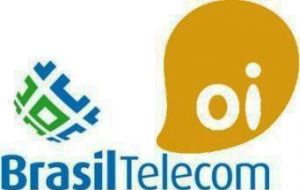MercoPress. South Atlantic News Agency
Oi telecommunications US$ 19bn bankruptcy, the largest in Brazil's history
 Oi sought protection from creditors on 65 billion reais (US$19 billion) in debt after failing to reach a restructuring agreement following a long saga of mergers
Oi sought protection from creditors on 65 billion reais (US$19 billion) in debt after failing to reach a restructuring agreement following a long saga of mergers  Oi also operates part of Brazil's landline phone system, which has proven onerous; the company has a legal commitment to expand and maintain the obsolete network
Oi also operates part of Brazil's landline phone system, which has proven onerous; the company has a legal commitment to expand and maintain the obsolete network  Bankruptcy filing caps off a chaotic period in Oi’s history. Marco Schroeder was named to replace Gontijo earlier this month, becoming Oi’s sixth CEO in five years.
Bankruptcy filing caps off a chaotic period in Oi’s history. Marco Schroeder was named to replace Gontijo earlier this month, becoming Oi’s sixth CEO in five years. Brazilian telecoms giant Oi has filed the largest bankruptcy request in the country’s history, after failing to reach an agreement with creditors.
The filing, which covers Oi and six subsidiaries, lists BRL65.4 billion (USD19.2 billion) of debt, and the company has said that it chose judicial reorganization to preserve the value of its holdings and to continue providing service to its customers.
Oi’s board decided to move ahead with the filing after determining that the company was unlikely to get approval from shareholders and creditors for a voluntary exchange offer in time to make the next debt payment, two people familiar with the matter have claimed.
Talks with creditors stalled last week after some board members disagreed with a plan by bondholders to swap debt for equity, giving them 95% of the company and leaving current shareholders with a 5% stake. The filing came just ten days after Bayard Gontijo resigned as Oi’s CEO, after disagreeing with some board members on how to proceed on negotiations with debt holders.
Following Mr Gontijo’s departure, Marco Schroeder was appointed to replace him, becoming Oi’s sixth chief executive officer in five years.
As can be anticipated the filing is likely to have major repercussions in Brazil, since state-owned banks Banco Nacional de Desenvolvimento Economico e Social, Caixa Economica Federal and Banco do Brasil are among Oi’s top creditors, along with private banks such as Itau Unibanco Holding.
Brazil’s telecommunications regulator Anatel said Oi needs its consent to sell many of its assets or use them as collateral. The agency will be monitoring the company’s operations to “protect the user,” according to an e-mailed statement. Anatel, which controls licenses to operate telecommunications networks, is unlikely to intervene if Oi can continue to provide good service, said two insiders, who asked not to be identified because the information is private.
Oi’s top shareholders include Pharol SGPS — the Portuguese holding company of former Portugal Telecom shareholders — along with the Ontario Teachers’ Pension Plan, the state-owned development bank BNDES and BlackRock, according to the phone company’s website.
Oi operates part of Brazil's landline phone system, which has proven onerous — the company has a legal commitment to expand and maintain the obsolete network. It had about 5 billion reais of interest expenses in 2015, far more than the roughly 2.7 billion reais of operating income it had available to pay those costs
The phone carrier got its start as Tele Norte Leste, a company formed through the merger of 16 state-owned companies when Brazil’s telecommunications industry was privatized in 1998. In 2010, it merged with Brasil Telecom Participacoes, expanding its geographic coverage but ballooning its debt.




Top Comments
Disclaimer & comment rules-

-

Read all commentsOh dear, another lesson to the Brazil Nuts that you need intelligence to successfully run any business, nevermind a reasonably sized one.
Jun 25th, 2016 - 10:31 am 0Regrettably for the Nuts there is very little intelligence around on the Southern Cone.
And of course, nobody is responsible!
Jun 29th, 2016 - 12:51 pm 0Commenting for this story is now closed.
If you have a Facebook account, become a fan and comment on our Facebook Page!